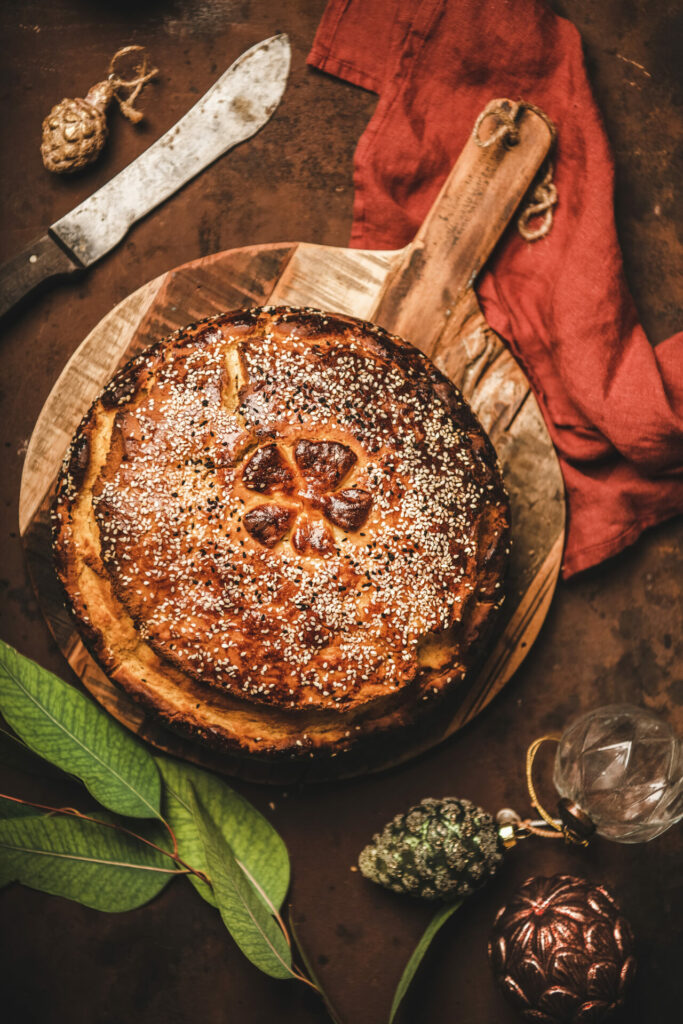The first picture that comes to mind when thinking of Greece is a sea view from an island in the Aegean, with the hot summer sun. But Christmas in Greece is one of the best times of the year. In Greece’s big urban centers, like Thessaloniki and Athens, the city is transformed with lights. And in Greece’s villages, we see local food traditions and Christmas markets. In this article, we discover all of Greece’s unique Christmas traditions.

Greeks Decorate Boats for Christmas
Yes, that’s right. Instead of a tree, Greeks decorate a boat for Christmas. This is to honor St. Nicholas, who is the protector of fishermen and sailors. This is because fishing was one of the most popular jobs in the past. Also, the boat represents a new voyage in life with the birth of Christ. The decorating of trees is a relatively new tradition from after World War II.

Santa Claus Delivers Presents on January 1st
Greeks are known to wait until the last minute to do things. Greek children get presents on New Year’s Day and not Christmas. This is because January 1st is the day of St. Basil. St. Basil is known to bring toys and Christmas treats. Some areas of Greece, like Crete for example, are known to give money instead of physical gifts. This is known as the tradition of “Kali Hera” (Good Hand) – giving money to nieces and nephews who are around on New Year’s Eve or New Years Day when they visit.

Melomakarona and Kourabiedes
Melomakarona are made with olive oil, flour, honey, and lemon or orange. Relatively speaking, they are healthier than most desserts, and often include cinnamon and walnuts. Melomakarona were also eaten in ancient Greece, when a barley mixture called makaria was eaten at funerals. The addition of honey to this mixture gives the name “melomakarona.”
Kourabiedes are famous as a Christmas cookie in Greece, and the main ingredients are flour, butter, almonds, sugar, and brandy. The most important part is the powdered sugar on top, which add a wonderful sweetness when you bite into them. Kourabiedes have their roots in Persia in the 7th century, and they eventually made their way to Greece.

Greeks Celebrate Until January 6th
The Epiphany is one of the biggest holidays of the year in Greece. It is celebrated especially in areas of Greece on the coast. Priests throw a cross into the sea and young men dive in to get it back. The symbolism of the day is the baptism of Jesus Christ by St. John the Baptist.

Christmas Caroling in Greece
Another Christmas tradition is carol singing. “Kalanda,” the Greek word for carols, are usually sung on Christmas, New Year’s, and Epiphany.
It is normal that children, either individually or in groups, visit houses and shops, with the accompaniment of an iron triangle, and sing the carols. To do so, they ask, “na ta poume?” which translates into “should we tell them (the carols)”. In the past, carol singers were rewarded with sweets, but today, most people tip carolers.

Cutting the Vasilopita
Greeks bake a special bread to honor Saint Basil, the Greek Santa Claus. There is a special bread baked in his honor called vasilópita, which contains eggs, milk, flour, sugar, butter, and sometimes walnuts. A lucky coin is baked into the cake, and after midnight on New Years’ people all get together to cut the vasilopita. Whoever finds the coin will have good luck for the next year.









